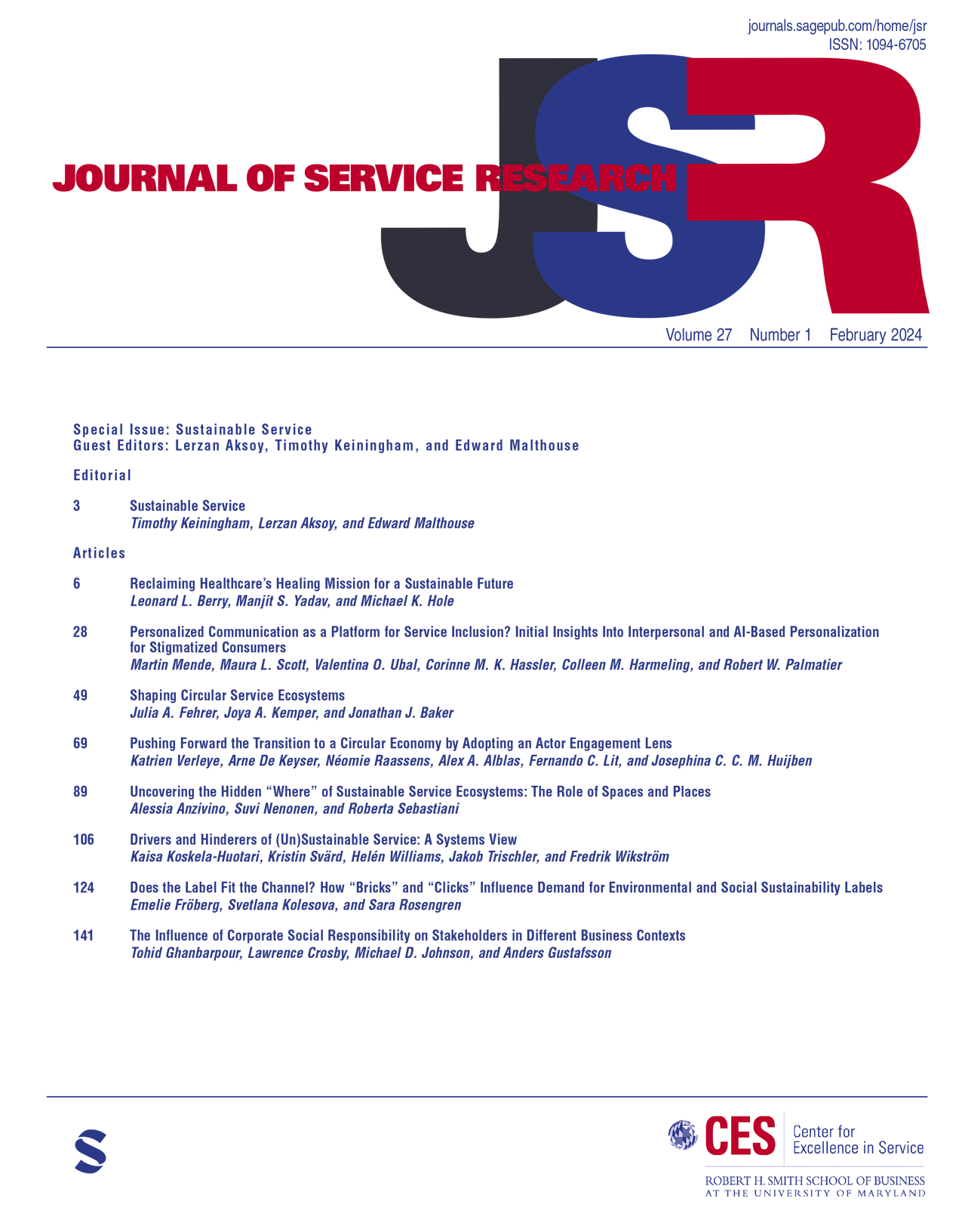第一线的建设性抵抗:第一线员工对顾客不文明行为的抵抗如何影响顾客观察者
IF 8.6
2区 管理学
Q1 BUSINESS
引用次数: 5
摘要
一线员工经常面对顾客的无礼行为——粗鲁或贬低的言论、言语攻击或敌对的手势。尽管来自客户的不文明行为正在以惊人的速度增长,但大多数组织拒绝采取果断行动来保护他们的员工,阻止客户的不文明行为。这项研究断言,忽视和接受客户不礼貌的组织政策既不是明智的商业策略,也不会产生积极的结果。相反,客户的不文明行为应该及时果断地处理。具体来说,作者提出了FLE建设性阻力(FLE CR)作为应对客户不文明行为的策略。作者对企业高管进行了访谈,开发了一个建设性阻力(CR)量表,以适应企业高管与客户接触的背景,并测试了一个概念模型,以检验企业高管对CR的影响。结果表明,观察到同伴不文明行为的顾客对FLE CR的反应是积极的,包括更高的未来购买意愿、更高的正面口碑意愿和更低的未来不当行为意愿。这些效应是通过观察者对客户满意度的公平感知来中介的。最后,客户满意度对观察者结果的间接影响更可能在道德认同较高的客户和新客户中表现出来。本文章由计算机程序翻译,如有差异,请以英文原文为准。
Constructive Resistance in the Frontlines: How Frontline Employees’ Resistance to Customer Incivility Affects Customer Observers
Frontline employees (FLEs) often face customer incivility—rude or demeaning remarks, verbal aggression, or hostile gestures. Although incivility from customers is rising at an alarming rate, most organizations refuse to act decisively to protect their FLEs and stop customer incivility. This research asserts that an organizational policy of ignoring and accepting incivility from customers is neither a wise business strategy nor has positive outcomes. In contrast, customer incivility should be handled promptly and decisively. Specifically, the authors present FLE Constructive Resistance (FLE CR) as a strategy to confront customer incivility. The authors conduct interviews with FLEs, develop a Constructive Resistance (CR) scale to fit the context of FLE–customer encounters, and test a conceptual model to examine the impact of CR by FLEs. The results suggest that customers who observe incivility perpetrated by fellow customers respond positively to FLE CR, including greater future purchase intention, greater positive word-of-mouth intention, and reduced future misbehavior intention. These effects are mediated by the observer’s perceived fairness of the FLE’s CR. Finally, the indirect effects of FLE’s CR on observer outcomes are more likely to manifest in customers with higher moral identity as well as newer customers.
求助全文
通过发布文献求助,成功后即可免费获取论文全文。
去求助
来源期刊

Journal of Service Research
BUSINESS-
CiteScore
20.30
自引率
6.50%
发文量
28
期刊介绍:
The Journal of Service Research (JSR) is recognized as the foremost service research journal globally. It is an indispensable resource for staying updated on the latest advancements in service research. With its accessible and applicable approach, JSR equips readers with the essential knowledge and strategies needed to navigate an increasingly service-oriented economy. Brimming with contributions from esteemed service professionals and scholars, JSR presents a wealth of articles that offer invaluable insights from academia and industry alike.
 求助内容:
求助内容: 应助结果提醒方式:
应助结果提醒方式:


